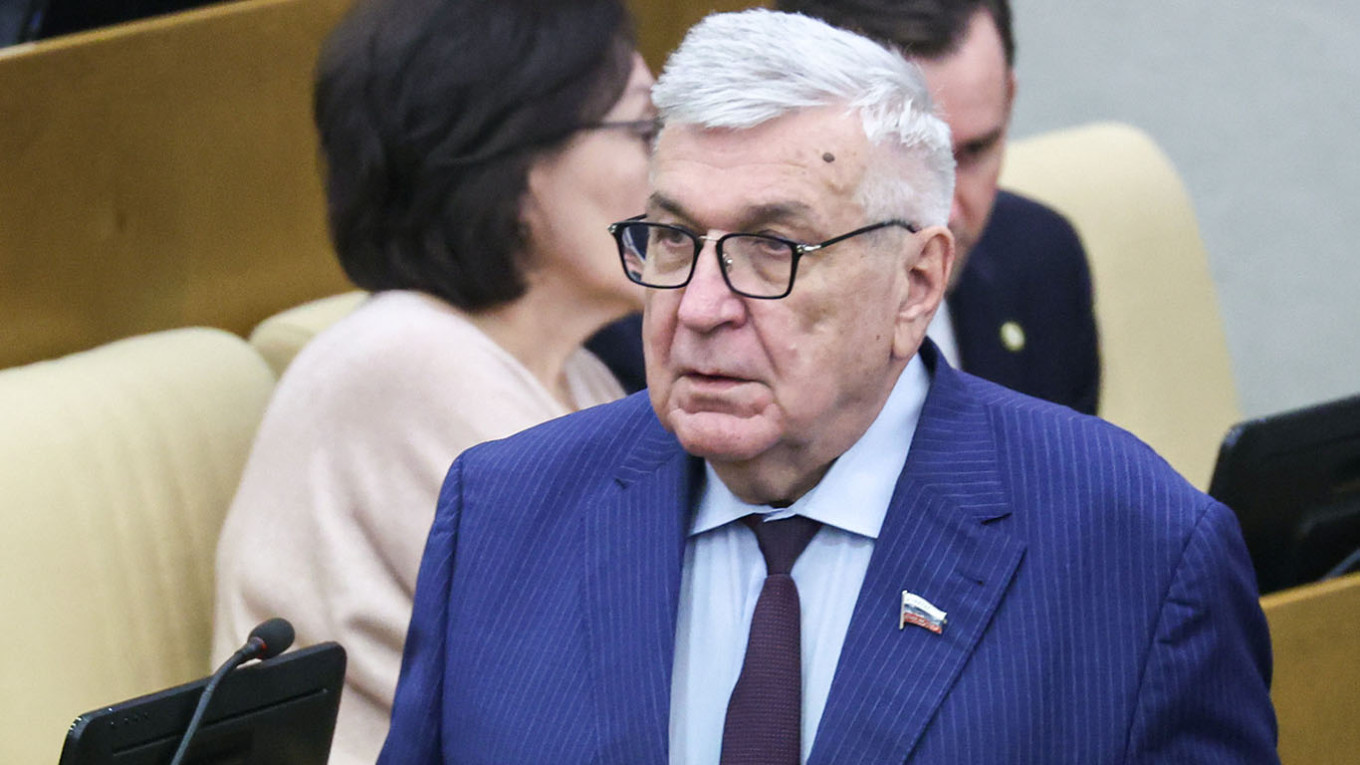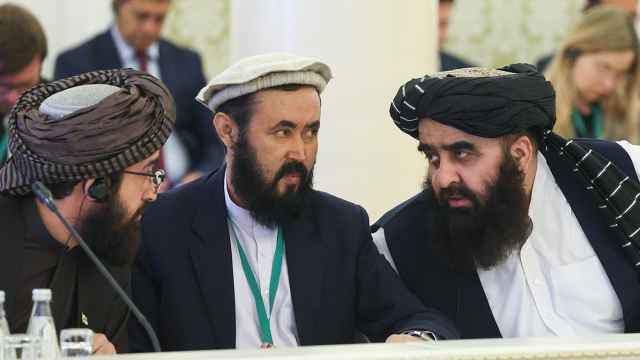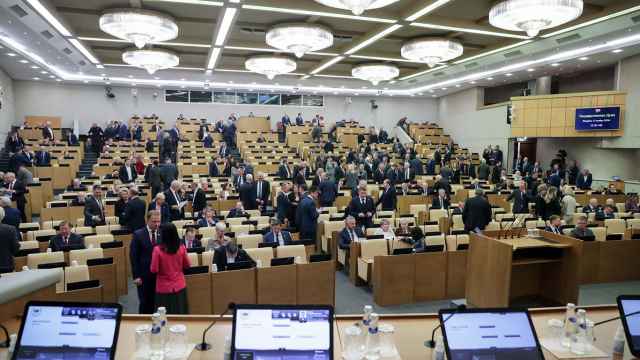State Duma lawmaker Mikhail Tarasenko voted 11 times during a parliamentary session on Tuesday, shortly before the speaker of the lower house announced that he had died.
Tarasenko, a member of the ruling United Russia party, was “very sick,” according to State Duma Speaker Vyacheslav Volodin, who disclosed his death during the same session in which Tarasenko’s votes were recorded.
According to the BBC’s Russian service, Tarasenko did not vote on a controversial bill targeting “extremist” content online. However, he was shown as voting in favor of other legislation, including a bill to withdraw Russia from the Ramsar Convention on wetlands and another allowing widows of soldiers killed in Ukraine to use their late husbands’ cars before formally inheriting their savings.
BBC Russia noted this is not the first time a lawmaker has seemingly voted while incapacitated or deceased.
In a similar case last year, a lawmaker who was reportedly too ill to attend a State Duma session still had his vote registered. According to parliamentary rules, proxy voting is allowed if a lawmaker provides a valid reason and gives his or her voting card to colleagues.
Journalists at BBC Russia suggested a similar proxy voting incident may have occurred with Tarasenko, pointing to the close timing between the votes and the announcement of his death.
Lawmaker Evgeny Revenko, who sits on the State Duma’s ethics committee, later told the business newspaper Kommersant that Tarasenko’s votes were cast on Tuesday due to a “technical malfunction,” suggesting that he was deceased at the time of the votes.
Tarasenko was born in 1947 in Taganrog, Rostov region. He spent most of his career working in the mining and metallurgical industries before entering politics.
A Message from The Moscow Times:
Dear readers,
We are facing unprecedented challenges. Russia's Prosecutor General's Office has designated The Moscow Times as an "undesirable" organization, criminalizing our work and putting our staff at risk of prosecution. This follows our earlier unjust labeling as a "foreign agent."
These actions are direct attempts to silence independent journalism in Russia. The authorities claim our work "discredits the decisions of the Russian leadership." We see things differently: we strive to provide accurate, unbiased reporting on Russia.
We, the journalists of The Moscow Times, refuse to be silenced. But to continue our work, we need your help.
Your support, no matter how small, makes a world of difference. If you can, please support us monthly starting from just $2. It's quick to set up, and every contribution makes a significant impact.
By supporting The Moscow Times, you're defending open, independent journalism in the face of repression. Thank you for standing with us.
Remind me later.






